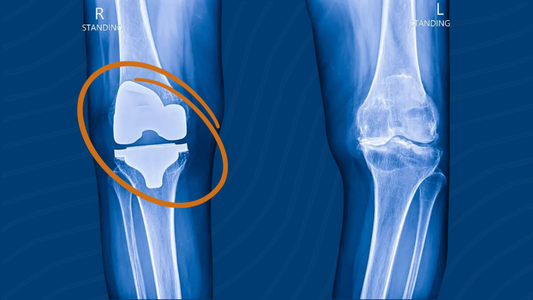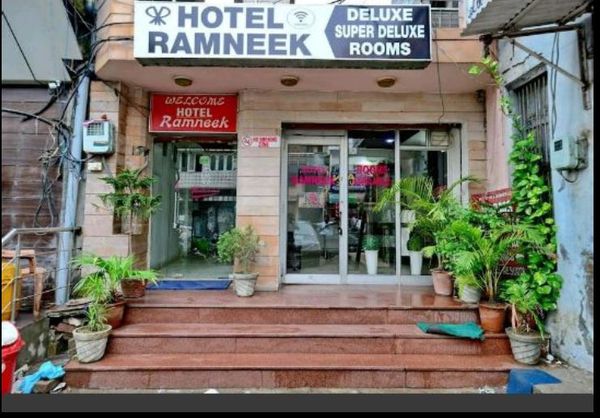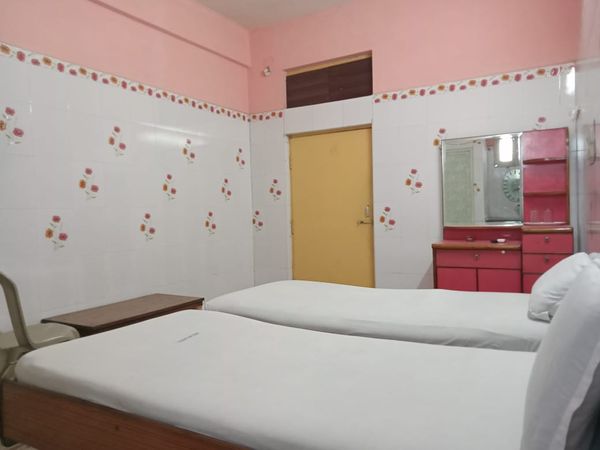5 Key Factors Influencing Knee Replacement Cost in Pakistan
 Maggie Wright
24 Apr, 2025
10 mins read
235
Maggie Wright
24 Apr, 2025
10 mins read
235

Knee replacement surgery is a life-changing procedure for individuals suffering from chronic knee pain caused by conditions like osteoarthritis or rheumatoid arthritis. Knee replacement cost in Pakistan can vary widely depending on several factors. Understanding these factors can help patients make more informed decisions and plan their treatment and finances effectively.
1. Hospital Type and Location
The type of hospital you choose plays a crucial role in determining the cost of knee replacement surgery.
Public vs. Private Hospitals
- Public Hospitals: Government-funded institutions typically offer knee replacement surgeries at a more affordable rate compared to private hospitals. However, the amenities and service levels may differ, with longer waiting times and more basic facilities.
- Private Hospitals: These hospitals provide more personalized care, advanced medical equipment, and better amenities, which often come at a higher cost. Patients can expect faster surgery scheduling and more comfortable recovery environments.
- Premium Private Hospitals: Some top-tier private hospitals, which offer state-of-the-art facilities and renowned orthopedic surgeons, tend to charge significantly higher for knee replacement surgery due to the specialized care and services they provide.
Geographical Influence
The location of the hospital also affects the cost. Major cities like Karachi, Lahore, and Islamabad generally have higher surgery costs due to the concentration of advanced medical facilities and specialized surgeons. In contrast, smaller towns may have lower costs, although the quality of care might differ.
2. Surgeon’s Expertise and Experience
The qualifications and experience of the orthopedic surgeon performing the knee replacement surgery significantly impact both the cost and the outcome of the procedure.
- Experienced Surgeons: Highly experienced and renowned surgeons tend to charge higher fees due to their extensive expertise. While the initial cost may be more expensive, their proficiency often leads to better surgical outcomes and a lower risk of complications, which can ultimately save money in the long run.
- Less Experienced Surgeons: Surgeons with less experience may offer more affordable services, but patients should carefully consider the potential risks, including longer recovery times and higher chances of complications.
It’s essential to weigh the surgeon’s experience against the costs to ensure that you are getting the best possible care for your needs.
3. Type and Quality of Knee Implant
The type of knee implant used during surgery is a significant factor in determining the overall cost. Knee implants vary in terms of materials, durability, and the level of customization, all of which can influence the price.
Implant Materials
- Metal-on-Polyethylene: This is the most common and cost-effective option for knee implants. These implants are made from metal alloys and high-density polyethylene and are known for their durability and functionality.
- Ceramic-on-Ceramic: These implants offer enhanced longevity and a lower wear rate compared to metal-on-polyethylene options, but they come at a higher price due to their advanced materials.
- Metal-on-Metal: These implants provide great durability and are often recommended for younger patients, although they can sometimes lead to complications such as wear debris. They may also carry a higher price tag due to their material properties.
Custom Implants
Some hospitals offer customized implants tailored to the patient's unique anatomy. These personalized implants can provide better comfort and functionality post-surgery, but they are typically more expensive than standard implants.
4. Additional Medical Expenses
Knee replacement surgery involves several additional costs beyond the procedure itself. These costs can add up, so it’s important to consider them when budgeting for the surgery.
- Pre-operative Tests: Before surgery, patients are typically required to undergo a series of medical tests such as blood work, X-rays, and MRIs to assess their suitability for the procedure. These tests add to the overall cost of the treatment.
- Medications: After surgery, patients will need medications to manage pain and prevent infection. These may include pain relievers, antibiotics, and other prescriptions, all of which can contribute to the total cost.
- Post-operative Care: Post-surgery, patients will require follow-up consultations, physiotherapy, and possibly additional medications. These post-operative care services can significantly add to the overall expense of knee replacement surgery.
5. Availability of Financial Assistance
Several programs and institutions in Pakistan offer financial support for patients undergoing knee replacement surgery. These programs are designed to make the procedure more accessible to individuals who cannot afford the full cost.
Government Programs
- National Health Insurance Program (NHIP): This program provides subsidized healthcare services, including surgeries, for registered beneficiaries. It is an excellent option for those who need financial assistance with medical expenses.
- Provincial Health Departments: Many provincial governments offer subsidized or free knee replacement surgeries through their health departments. These services are often available to low-income individuals who meet certain criteria.
Charitable Organizations
- Shaukat Khanum Memorial Cancer Hospital & Research Centre: Although primarily focused on cancer treatment, Shaukat Khanum Hospital may offer subsidized knee replacement surgeries for eligible patients based on financial need.
- Aga Khan University Hospital: This hospital offers financial assistance for medical expenses, including surgeries, for individuals who cannot afford the full cost of treatment.
Corporate Social Responsibility (CSR) Programs
Some private hospitals and pharmaceutical companies have CSR programs that provide free or subsidized medical services to individuals in need. These programs are often targeted at low-income individuals or those facing financial hardships.
Frequently Asked Questions (FAQs)
1. What is the average cost of knee replacement surgery in Pakistan?
The cost of knee replacement surgery can vary widely depending on the type of hospital, the surgeon’s expertise, and the implant used. Generally, prices differ between public and private hospitals, with premium private hospitals offering higher-end services at an increased cost.
2. Are there any financial assistance programs available?
Yes, several financial assistance programs, such as the NHIP, provincial health departments, and charitable organizations like Shaukat Khanum and Aga Khan University Hospital, offer support for knee replacement surgeries.
3. How long is the recovery period after surgery?
Recovery time varies depending on the patient and the type of surgery performed, but most patients typically require 6 to 12 weeks for full recovery, including physical therapy.
4. What are the risks associated with knee replacement surgery?
Like any major surgery, knee replacement surgery comes with potential risks, such as infection, blood clots, nerve damage, and complications related to anesthesia. It's essential to consult with your surgeon to understand these risks.
5. Can I choose between partial and total knee replacement?
Yes, patients can opt for either partial or total knee replacement depending on their specific condition and the surgeon’s recommendation. Partial knee replacement is generally considered for patients who have knee issues limited to one area, while total knee replacement is recommended for more widespread damage.
Conclusion
The cost of knee replacement surgery in Pakistan is influenced by factors such as hospital type, orthopedic consultant expertise, implant quality, medical expenses, and financial aid options. Understanding these elements helps patients make informed decisions, manage costs, and achieve the best outcomes. Consult with an orthopedic consultant and explore financial assistance to ease the financial burden.
Written By:
Maggie Wright



Hotels at your convenience
Now choose your stay according to your preference. From finding a place for your dream destination or a mere weekend getaway to business accommodations or brief stay, we have got you covered. Explore hotels as per your mood.





